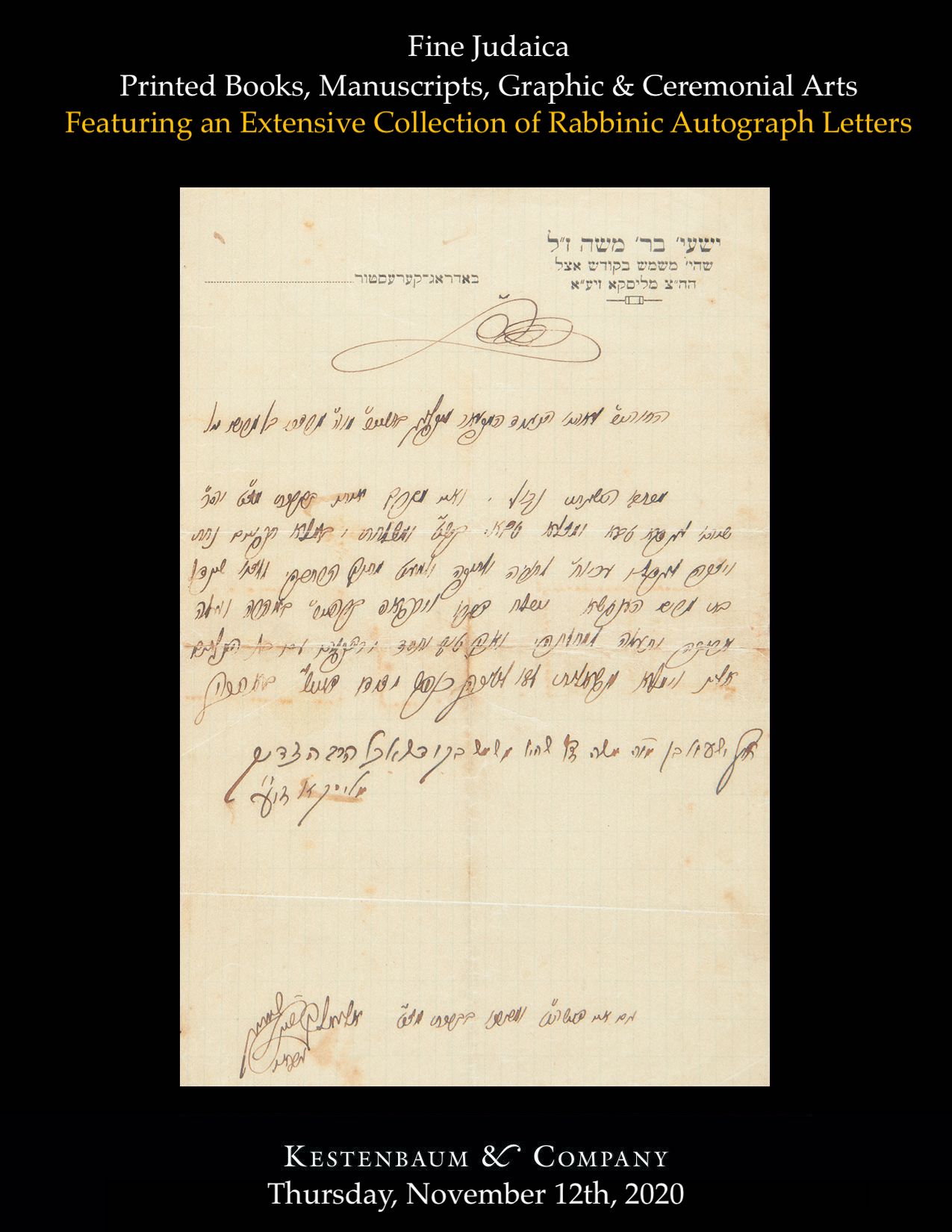Collection of five <<Surinam>> Almanacs.

Auction 91 |
Thursday, November 12th,
2020 at 1:00pm
Fine Judaica: Printed Books, Manuscripts, Graphic & Ceremonial Arts Featuring an Extensive Collection of Rabbinic Autograph Letters.
Lot 119
(AMERICAN-JUDAICA).
Collection of five <<Surinam>> Almanacs.
Amsterdam: C.G. Sulpke (1826-40)
Est: $5,000 - $7,000
PRICE REALIZED $4,700
Each of the almanacs is remarkably rare, indeed the issue for 1835 is entirely unrecorded.
Each volume provides detailed information for that particular year about trade and local government. Much is given over to the Jewish owned sugar plantations in Surinam along with other aspects of Jewish life in this remote locale situated along the northeastern Atlantic coast of South America.
Prominent Jewish families of Surinam feature and are named throughout these almanacs. This includes families de Pina, de Meza, de Mesquita, de Vries, de la Parra, da Costa, del Castilho, Nassy, Cotin, Delmonte, Emden, Fernandez, de Leon, Juda, etc. Ashkenazi family names also appear (Keyser, Heilbron, Soesman, etc).
The almanacs provide extensive detail concerning the running of every Jewish-owned plantation in Surinam. This includes information concerning location and size of each plantation, type of crop, slave-holdings, landowners, administrators, directors, officers, etc.
Also much detail is provided of civil and religious life, including synagogue affairs of both the Portuguese and Ashkanazic Jewish communities.
